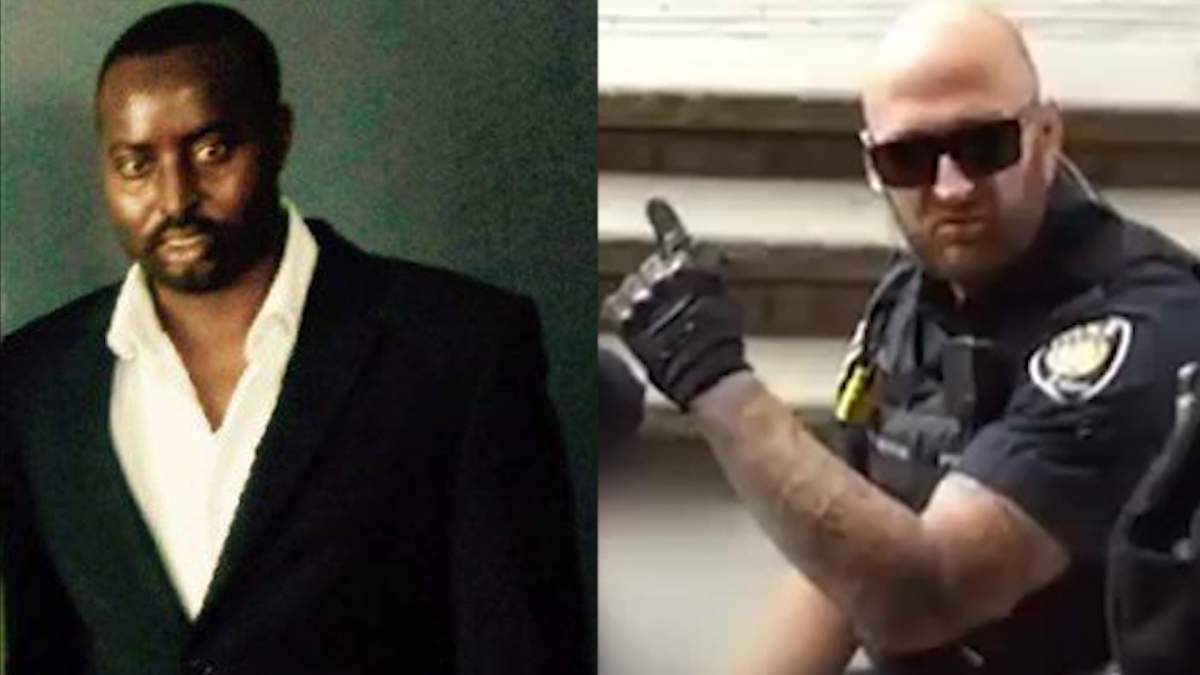An Ontario court justice will deliver his judgment Tuesday as to Ottawa police Const. Daniel Montsion’s culpability in the death of Abdirahman Abdi, more than four years after he died following a violent arrest outside his Hintonburg apartment building.

Montsion was charged following a probe by the Special Investigations Unit into the death of Abdi in July 2016. He has pleaded not guilty to manslaughter, aggravated assault and assault with a deadly weapon.
The case has become one of Ottawa’s highest-profile incidents of police violence.

The trial was meant to wrap up earlier this year, but closing arguments were only delivered in July following a delay due to the novel coronavirus pandemic.
Ontario Court Justice Robert Kelly will deliver his judgment in a hearing set for Tuesday morning at the Ottawa courthouse on Elgin Street.
Kelly has been tasked with sifting through the case’s evidence to determine whether or not Abdi’s death due to brain hypoxia was specifically caused by Montsion’s actions that day.
Not all of the evidence is cut and dry, though there are a few generally accepted facts as to the course of events.
The incident began the morning of July 24, 2016 at a Bridgehead Coffee shop in Hintonburg, where witnesses said Abdi was behaving erratically and groping women in the area. This led to police intervention, with Const. Dave Weir pursuing Abdi back to his apartment at 55 Hilda St.

Get breaking National news
This is when Montsion arrived on the scene and attempted to subdue Abdi in tandem with Weir, including striking Abdi in the face while wearing reinforced gloves.
This interaction is partly visible via surveillance video from the apartment building, but this tape’s reliability has been called into question, especially as it relates to determining the speed of the strikes.
Abdi was eventually pinned to the ground and handcuffed. An autopsy later revealed he suffered a heart attack over the course of the arrest.
Abdi was officially declared dead in hospital the following day, July 25, 2016.
Arguments from both the Crown and the defence counsel have revolved around some key questions, including:
- Are the reinforced gloves Montsion used to strike Abdi considered “weapons,” or were they issued as part of his Ottawa Police Service uniform?
- Did Montsion’s strikes break Abdi’s nose and block airflow to his brain, ultimately causing or accelerating his death, or were those injuries sustained in an earlier interaction with Weir? (Weir was cleared of potential charges by the earlier SIU probe.)
- What did Montsion know about the situation when he arrived on the scene at 55 Hilda St., and could he have taken a less aggressive approach to control the situation? Weir, whose memories of the event have also been called into question, described Abdi as having “superhuman strength” and has said Montsion saved his life during the arrest, but also is heard in audio recordings saying Abdi had “calmed down” by the time the other officer arrived.
- Could Abdi have gone past a “point of no return” before Montsion arrived on the scene? The defence has argued the combination of the distressing events at the coffee shop and a previously undetected heart condition could have sealed Abdi’s fate before the arrest was made.
Whichever decision Kelly comes to, the verdict is likely to generate strong reaction from the community.
Abdi’s death provoked outrage when it happened, with the Justice for Abdirahman Coalition becoming a leading voice in pushing for police reform and anti-racism policies in Ottawa.
The case has likewise been a rallying point for police, with the constable’s fellow officers donning “united we stand” bracelets bearing Montsion’s badge number when he was first charged.
Though the incident itself took place more than four years ago, the verdict will now be read amid a resurgence of the Black Lives Matter movement and calls to defund the police in the wake of the death of George Floyd and numerous other Black people at the hands of police.









Comments
Comments closed.
Due to the sensitive and/or legal subject matter of some of the content on globalnews.ca, we reserve the ability to disable comments from time to time.
Please see our Commenting Policy for more.